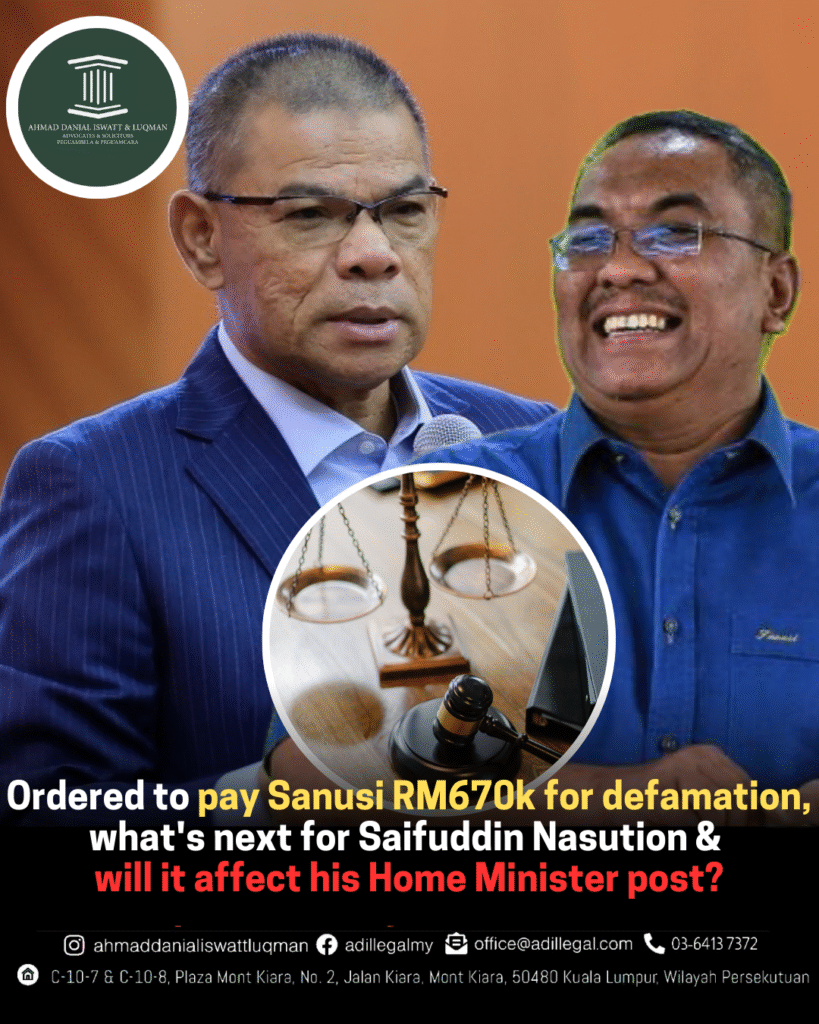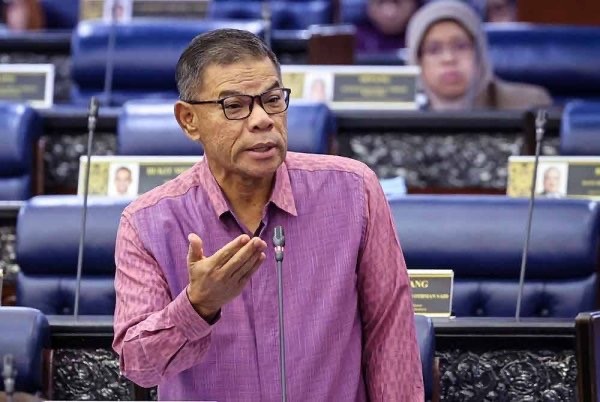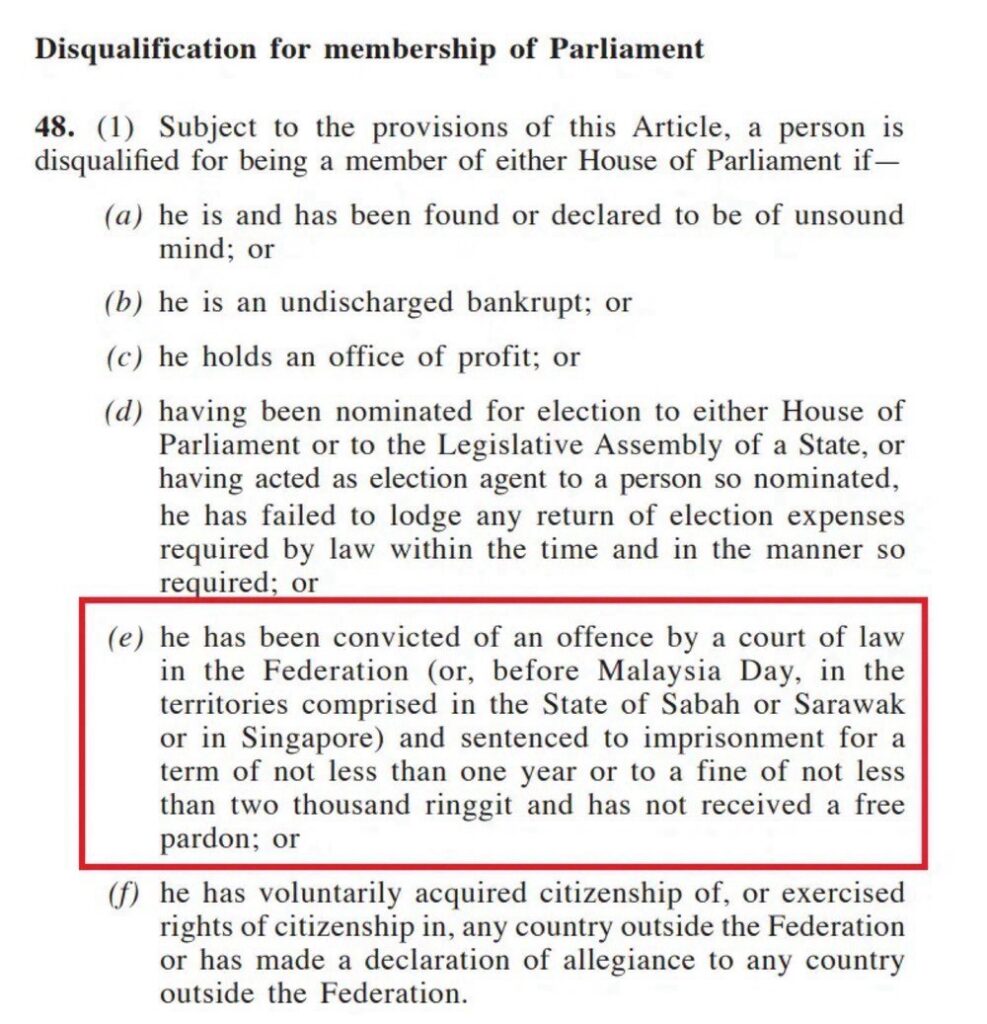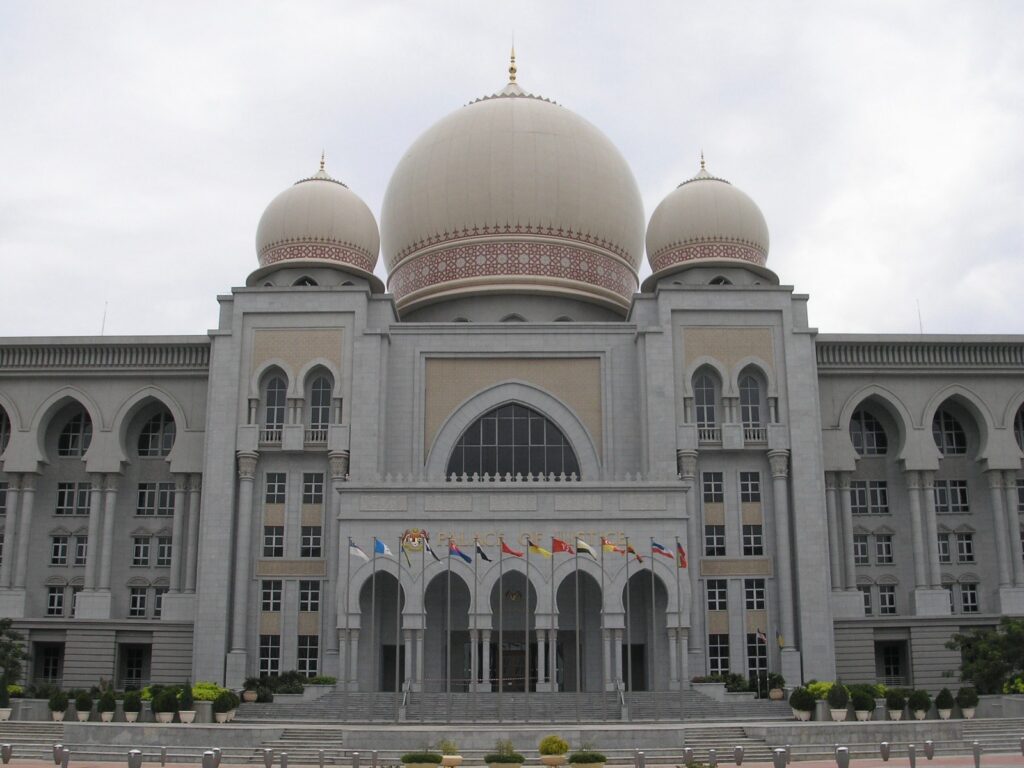
Ordered to pay Sanusi RM670k for defamation, what's next for Saifuddin Nasution & will it affect his Home Minister post?
Home Minister Datuk Seri Saifuddin Nasution made headlines nationwide recently, after the Alor Setar High Court on August 24 ordered him to pay RM600,000 in damages and RM70,000 in legal costs to Kedah Menteri Besar Datuk Seri Muhammad Sanusi Md Nor. This is after the latter had filed a defamation suit against the Home Minister over remarks Saifuddin Nasution made in Yan, Kedah, on July 15 2023.
As reported by NST, the defamatory statements were made during the 2023 Kedah State Election campaign, whereby the Home Minister alleged financial management and theft of rare earth elements (REE) committed by the Kedah Menteri Besar. Specifically, in two statements, Saifuddin Nasution accused Sanusi of misusing Malaysian Road Records Information System (Marris) funds and suggested his involvement in REE-related misconduct.
In his judgment, High Court Judge Dr John Lee Kien How @ Mohamad Johan Lee found that the remarks were made by the Home Minister, clearly referred to Sanusi and carried defamatory meaning. The Kedah Menteri Besar sought RM2.5 million in general damages for both defamatory statements, RM500,000 in aggravated damages and RM2 million in exemplary damages.
However, the Alor Setar High Court awarded global damages of RM600,000 and RM70,000 in legal costs, which is consistent with prevailing practice. The learned judge also ordered Saifuddin Nasution to publish an apology in one Malay-language and one English-language newspaper within 14 days, with the terms of the apology subject to the Kedah Menteri Besar’s approval.
A permanent injunction was also issued against Saifuddin Nasution, with the Home Minister directed not to republish the defamatory statements. In an update to the case by NST, Saifuddin Nasution has since filed an appeal over the ruling.
With all of the above established, what will happen next in the civil suit? With Saifuddin Nasution losing the defamation suit, will his position as Home Minister be affected?
Well, join us as we delve in depth into the case below.
What is defamation?
Before we go any further, it’s best to touch briefly on the laws on civil defamation that are relevant to the case first. In Malaysia, the law of civil defamation is set out in the Defamation Act 1957, whereby criminal defamation is governed under Section 499 of the Penal Code.
- An individual’s reputation in the eyes of right-thinking members of society would be lowered by the statement
- The statement exposes an individual to hatred, ridicule or contempt
- An individual’s business, trade, profession or calling is belittled by the statement
Besides that, defamation can either be libel or slander, depending on how the statement appears. In this case, Saifuddin Nasution’s statements are considered slander: Defamatory spoken statements or gestures, sometimes known as ‘defamation in temporary form’. Meanwhile, libel is defamation in written form, such as in an article or social media posts. Libel is also sometimes known as ‘defamation in permanent form’.
Defences against defamation
There are several common defences against defamation, which include privilege, fair comment and justification.
For the defence of privilege, there are two types: Absolute privilege and qualified privilege.
Absolute privilege may be raised when the statements were published or made in judicial proceedings, parliamentary proceedings, police reports and statements given to the police under Section 112 of the Criminal Procedure Code (CPC). Qualified privilege is a legal or moral duty to make the statement, or if the statement was made to further a legitimate common interest.
As for fair comment, it is a defence by establishing that the statement was an honest statement of one’s opinion relating to the public interest. In doing so, one must prove whether a “fair-minded person would hold the opinion that I hold, based on the proven facts, and is it in the public interest to express that opinion?”
Meanwhile, the defence of justification is when the person who made the statement was justified in stating it if the statement was true. However, this doesn’t apply to the sincere belief that the statement is true if it turns out to be untrue.
The defamation suit’s main issues of contention
Based on the Alor Setar High Court’s decision, the Home Minister had failed in his defence of fair comment, as it was found that Saifuddin Nasution failed to demonstrate that his remarks were grounded in verified facts. Moreover, the Home Minister had also failed to raise the defence of justification, as he had failed to prove on a balance of probabilities any truth behind his allegations.
The usage of the balance of probabilities in raising the defence of justification in defamation is established in the judgment of Dato Seri Mohammad Nizar bin Jamaluddin v Sistem Televisyen Malaysia Bhd & Anor [2014] 4 MLJ 242 below:
“In relying on the defence of justification, the burden of proof is on the defendant to prove that the allegations made are true or substantially true. The defendant must prove it on the balance of probabilities, that is, the allegation is more likely than not to be true. For example, an allegation published by repeating a rumour cannot be justified by proving that there was such a rumour.”
Should justification be established successfully, it can be a complete defence against a defamation suit. However, as the Alor Setar High Court noted, Saifuddin Nasution had failed to prove any factual basis to support his allegations on a balance of probabilities; hence, his defence of justification failed.
Saifuddin Nasution can appeal the suit up to the Federal Court
It’s not all doom and gloom for the Home Minister, though, as given that the civil suit was first heard at the High Court, he can appeal the decision to the two higher court levels. Specifically, Saifuddin Nasution can appeal the High Court’s decision to the Court of Appeal, which as we’ve mentioned earlier, he has done so. In the appeal, he can also apply for a stay of execution pending the outcome.
If the Appellate Court finds that there are plain errors in facts and/or law in the judgment by the High Court, the Court of Appeal will allow the appeal and overturn the High Court’s decision. Similarly, if Saifuddin Nasution’s appeal to the Court of Appeal is dismissed, the Home Minister has the right to have final recourse, which is to appeal the Appellate Court’s decision to the highest court and the final appellate court in Malaysia, the Federal Court.
However, do note that an appeal to the Federal Court is not as of right, whereby under Section 96 of the Court Judicature Act, a leave to appeal must be obtained from the Federal Court by posing a question of law which has to be decided for the first time and/or a question of importance where a Federal Court decision would give a public advantage. If the appeal doesn’t contain any of these criteria, it would be disallowed by the Federal Court.
Saifuddin Nasution’s position as Home Minister won’t be affected
While losing a defamation suit against a top Opposition leader may affect the reputation and credibility of a Minister, Saifuddin Nasution can breathe a sigh of relief as losing a civil suit won’t disqualify him from his Cabinet post. For context, Saifuddin Nasution infamously didn’t win a Parliamentary seat during the 15th General Election (GE15) and was appointed Home Minister by being a Senator in the Dewan Negara.
In Malaysia, the disqualification of a Senator and Member of Parliament (MP) is prescribed under Article 48(1) of the Federal Constitution below:
While, Article 48(1)(e) asserted that a member of either House of Parliament will have their membership disqualified if they have been convicted of an offence by a court of law in Malaysia and sentenced to imprisonment for a term of more than 1 year or a fine of more than RM2,000 and has not received a pardon, do note that a defamation suit is a civil suit, not a criminal case. Hence, the Home Minister is free to continue with the Cabinet position regardless of the outcome of the defamation suit.
Moving forward, all eyes would be on the civil suit should the appeal be brought before the Court of Appeal and/or Federal Court. Regardless of the outcome, let this civil suit be a lesson to everyone to not make any statements that could be defamatory to others, even if you’re a Minister!
For more insights into the Malaysian legal system such as this, do make sure to follow us on Facebook and Instagram or visit our official website. You can also read our articles on the popular Malaysian news aggregator app Newswav here.







